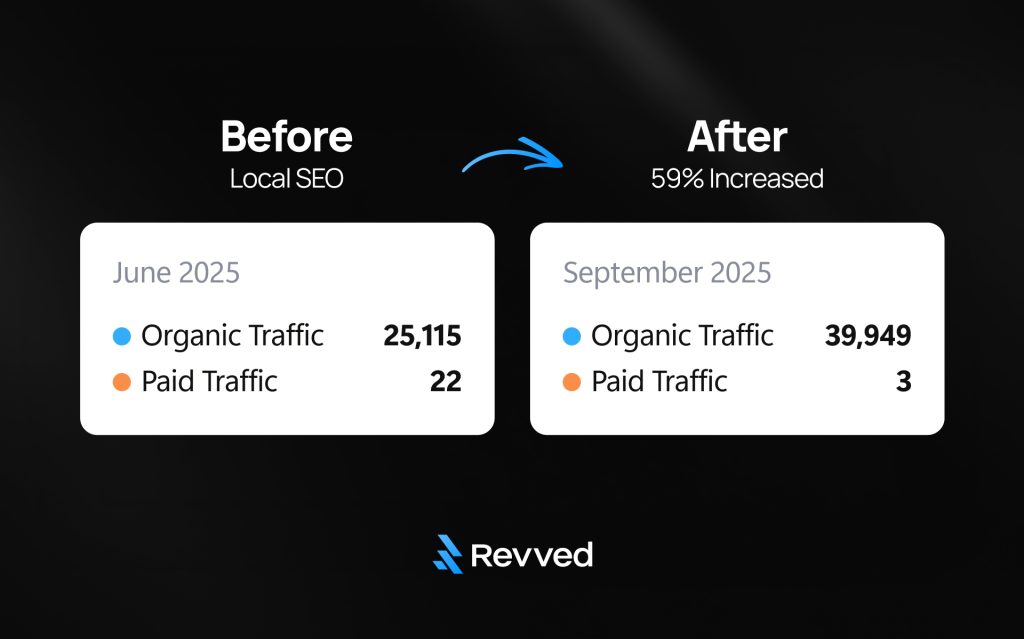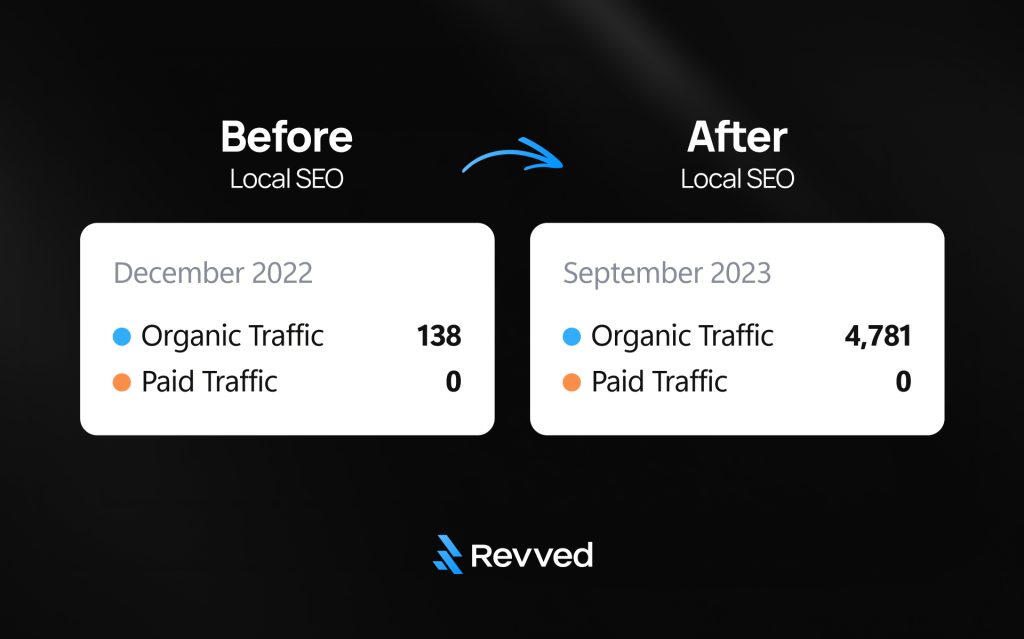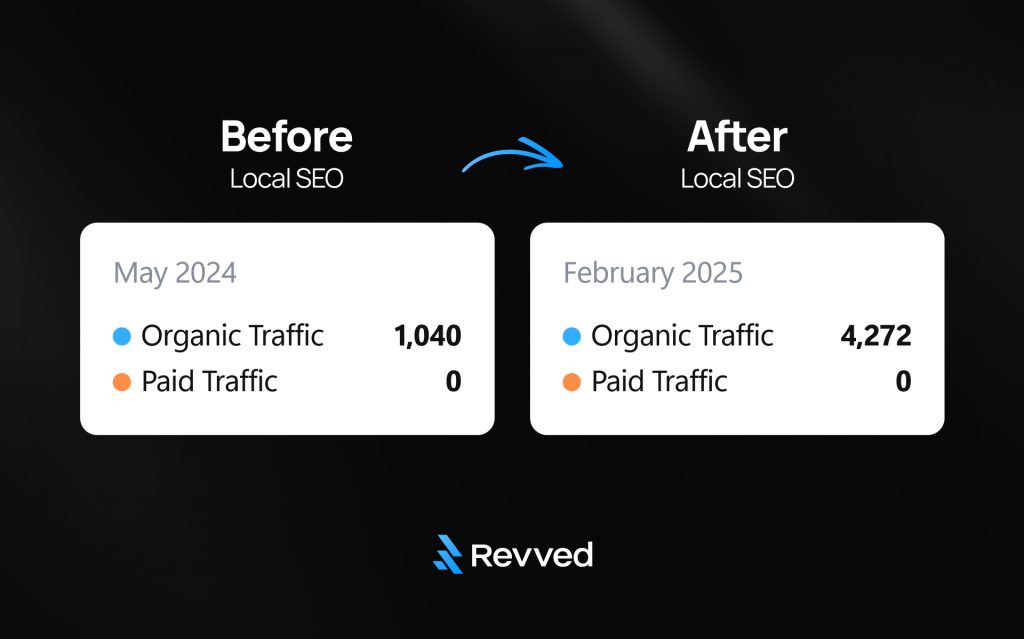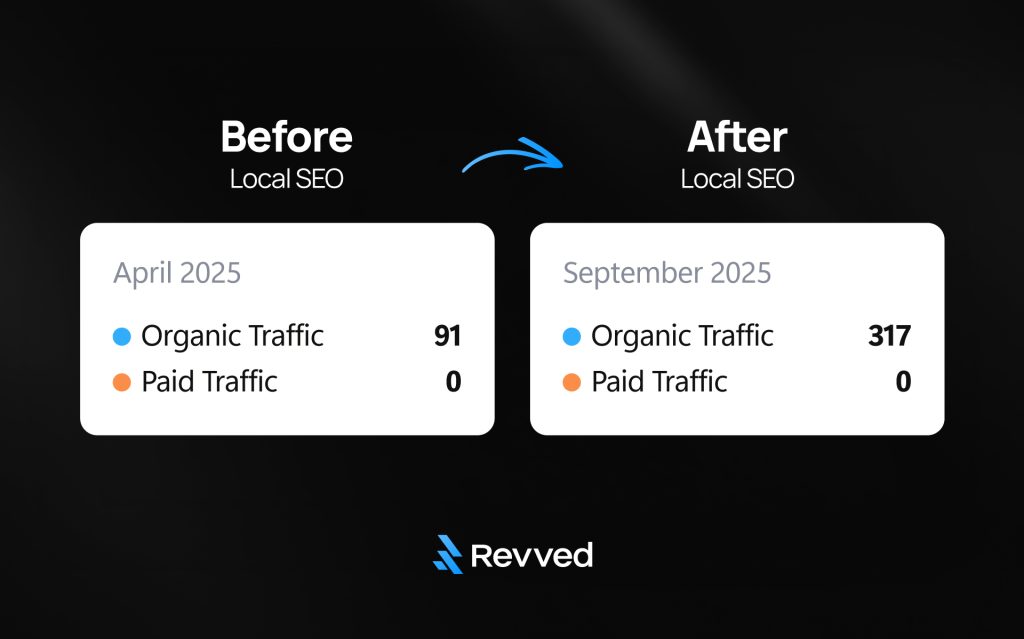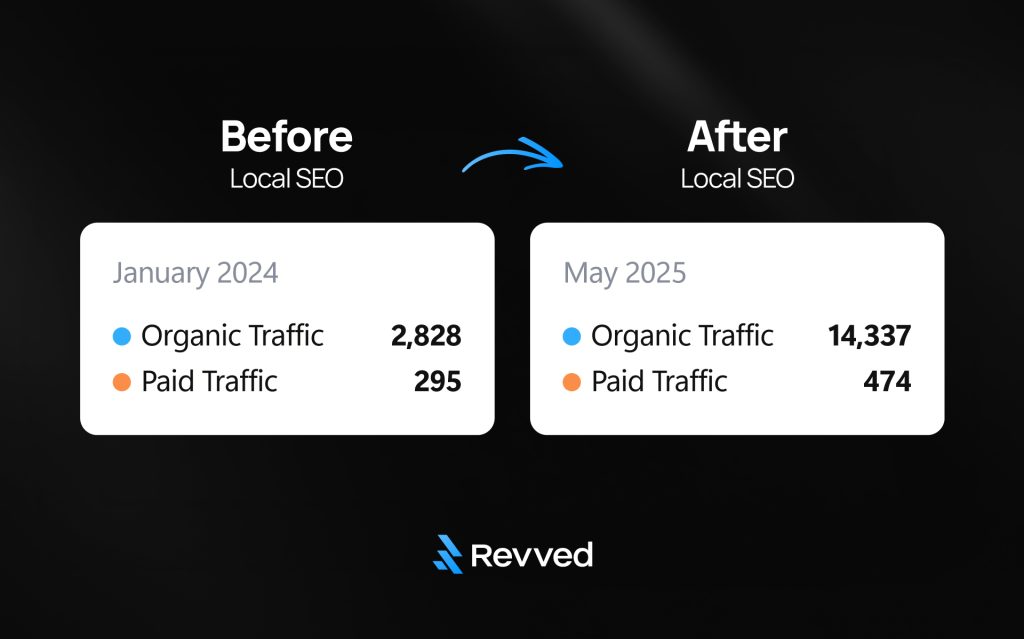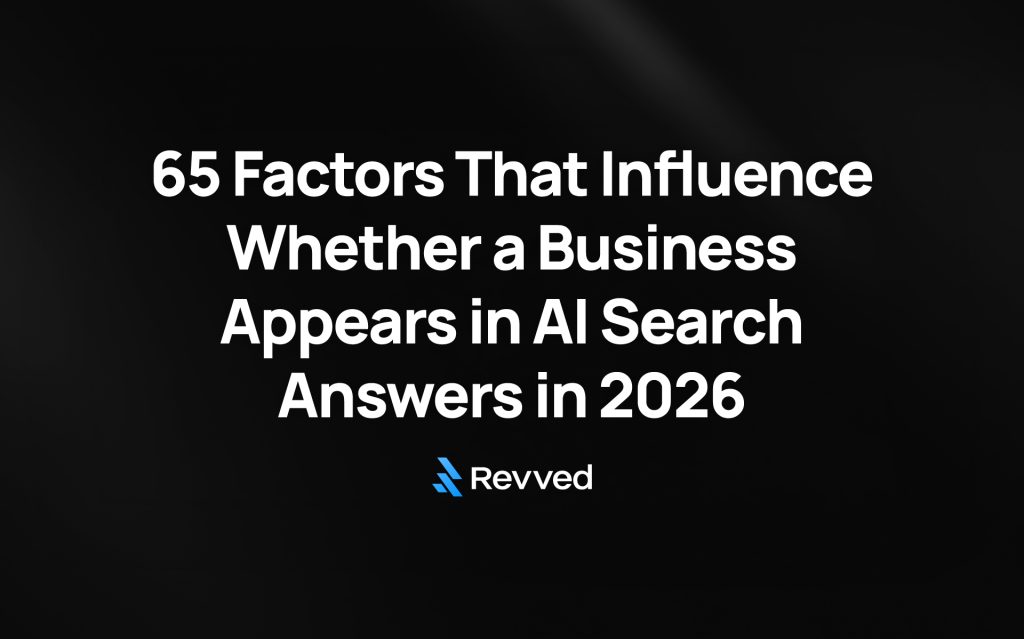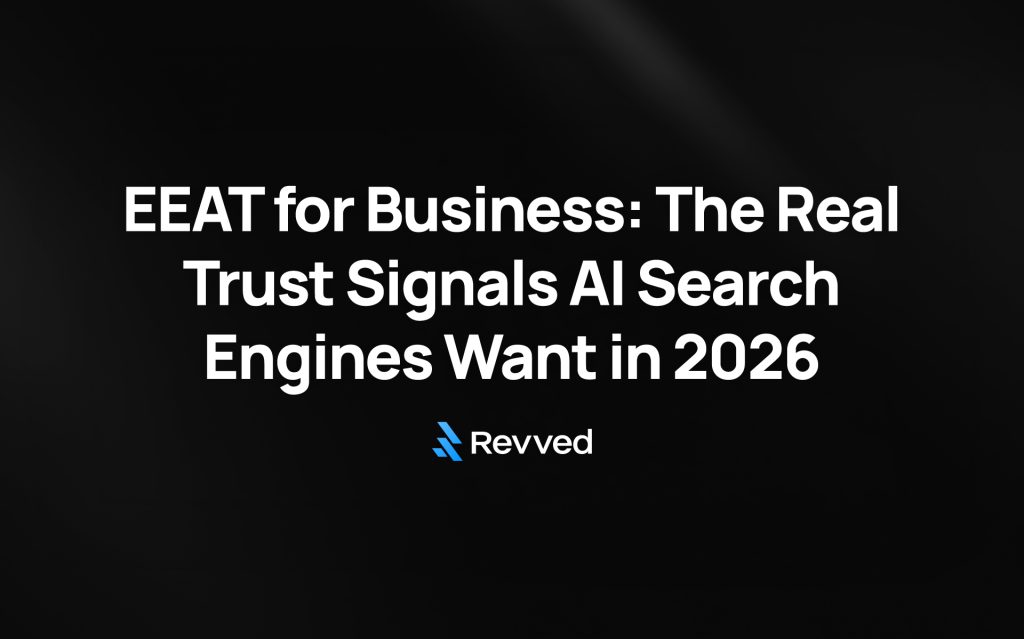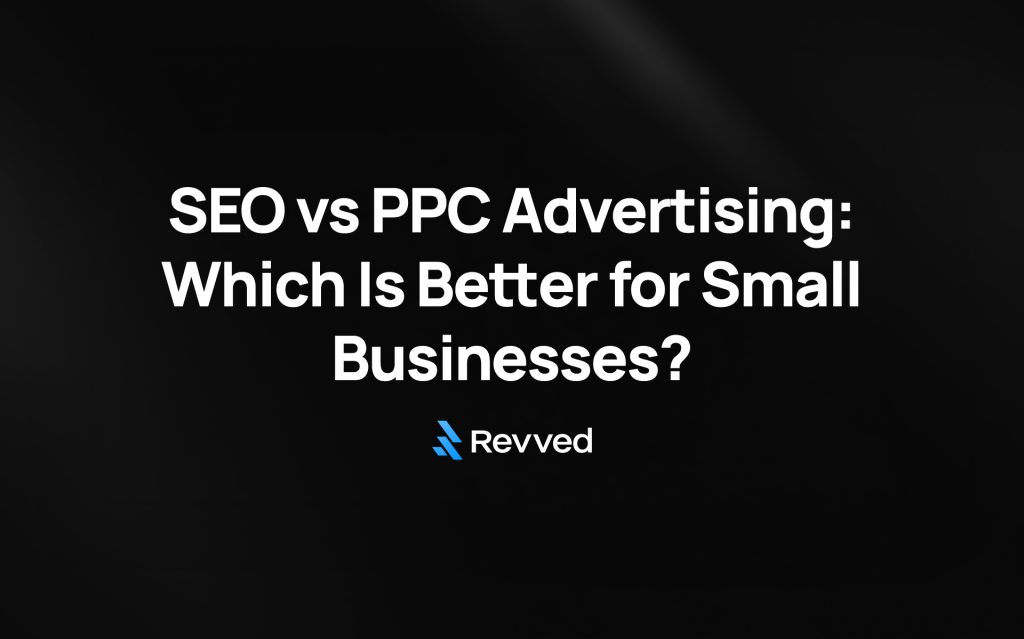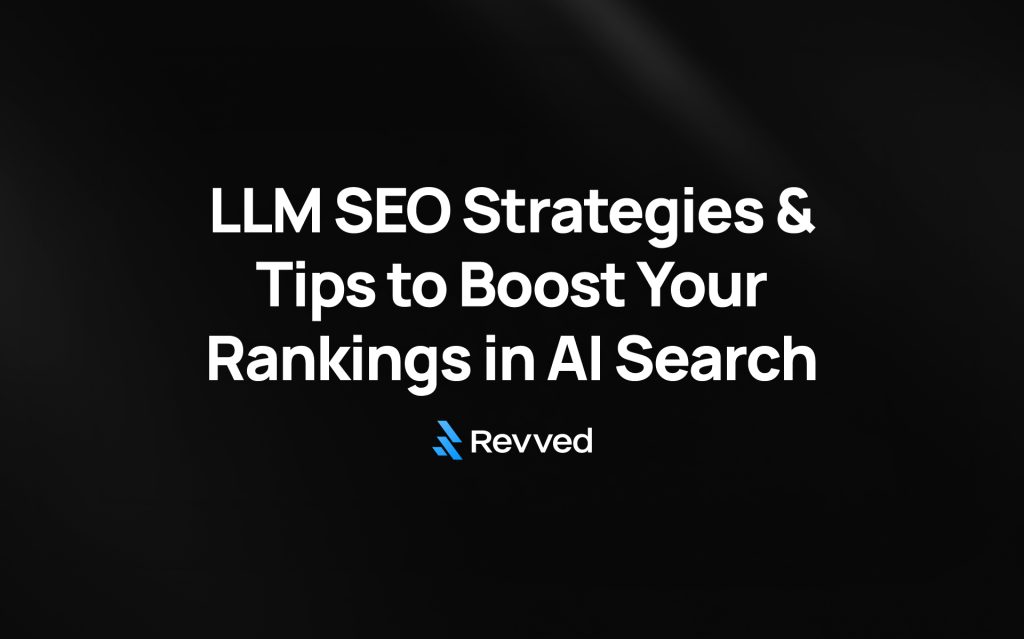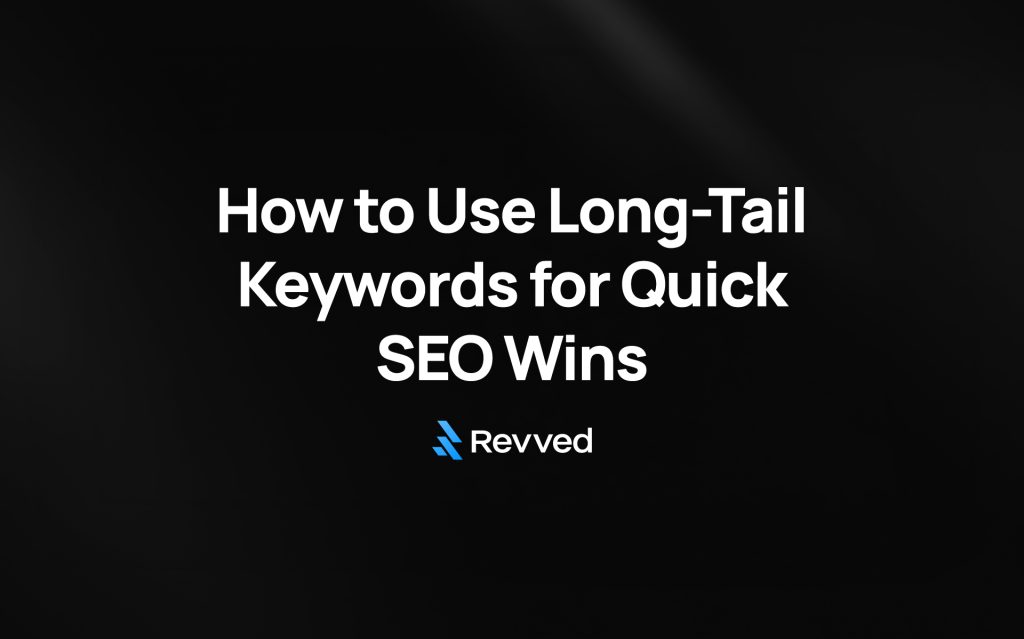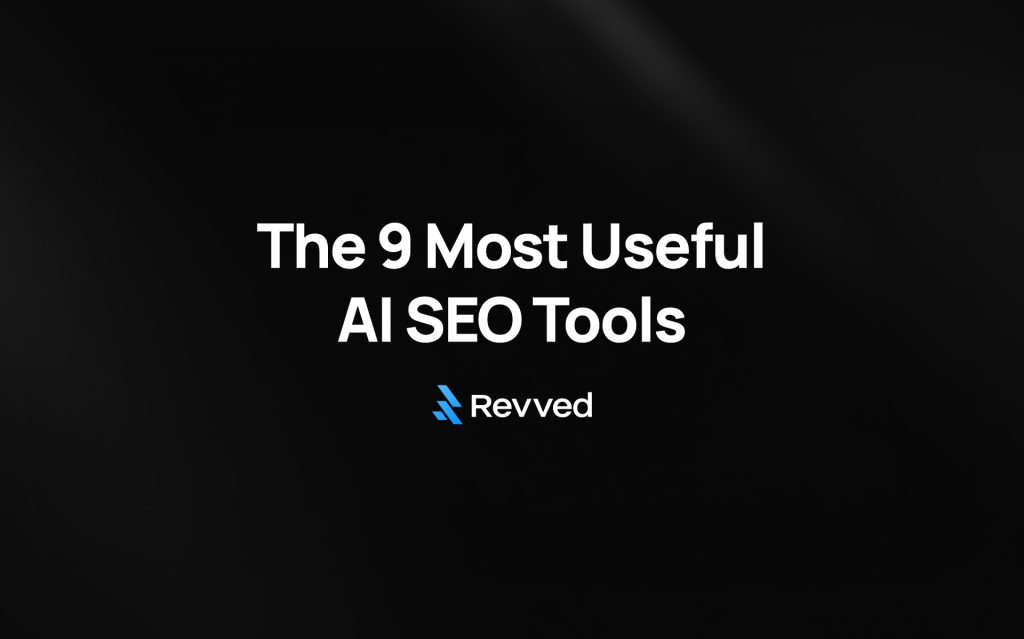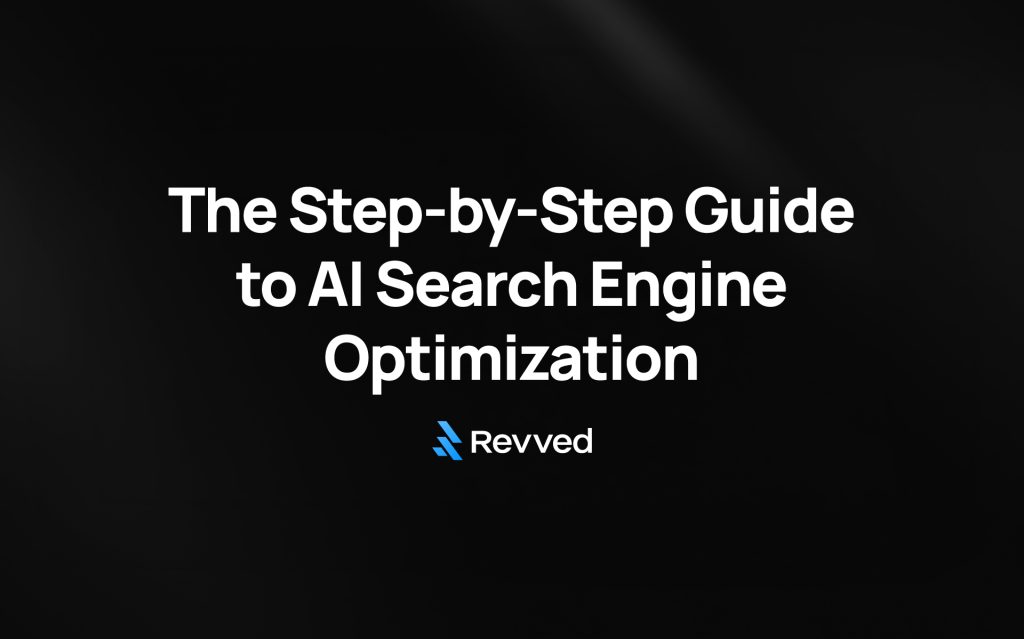Generative Engine Optimization Services
AI-SEO (also called GEO) makes sure your business shows up in those answers, not just the old blue links.
















































Make sure your business is getting recommended by ChatGPT and other AI's...
AI-driven platforms like ChatGPT, Perplexity, and Google’s SGE are becoming the go-to for quick answers. Without AI-SEO, your business risks being left out of these results.
- Optimize your site for AI-generated answers and summaries
- Be cited as a trusted source in large language models (LLMs)
- Capture visibility beyond traditional search results
- Future-proof your business against changing search behavior
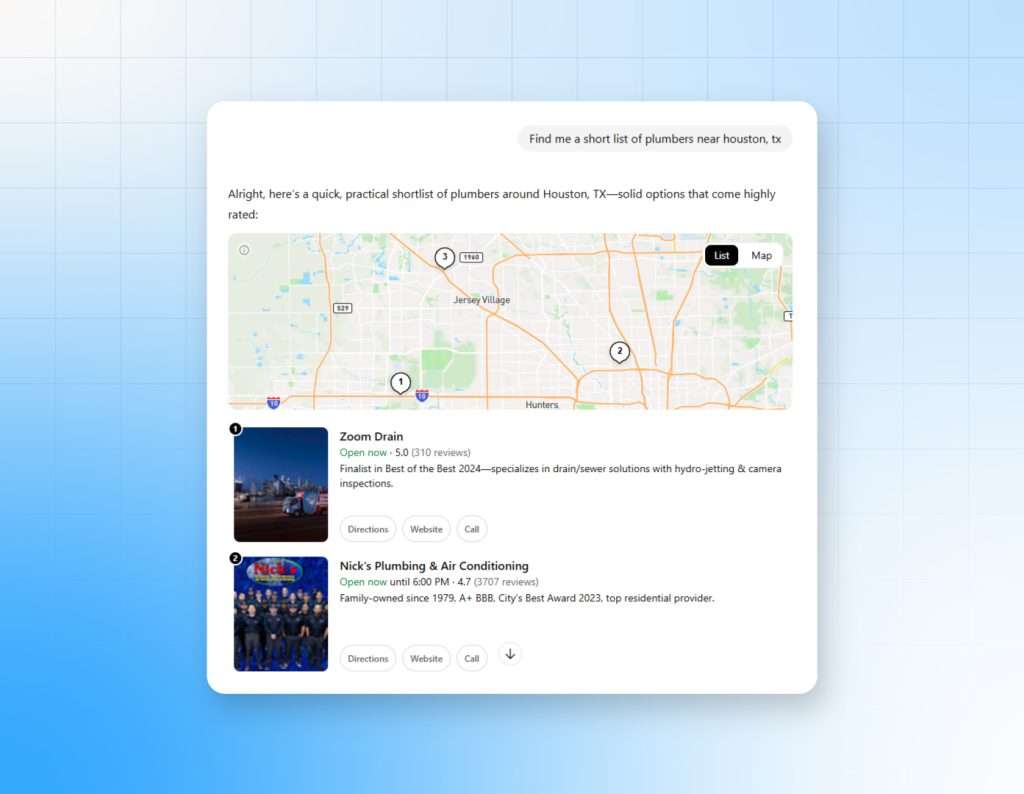
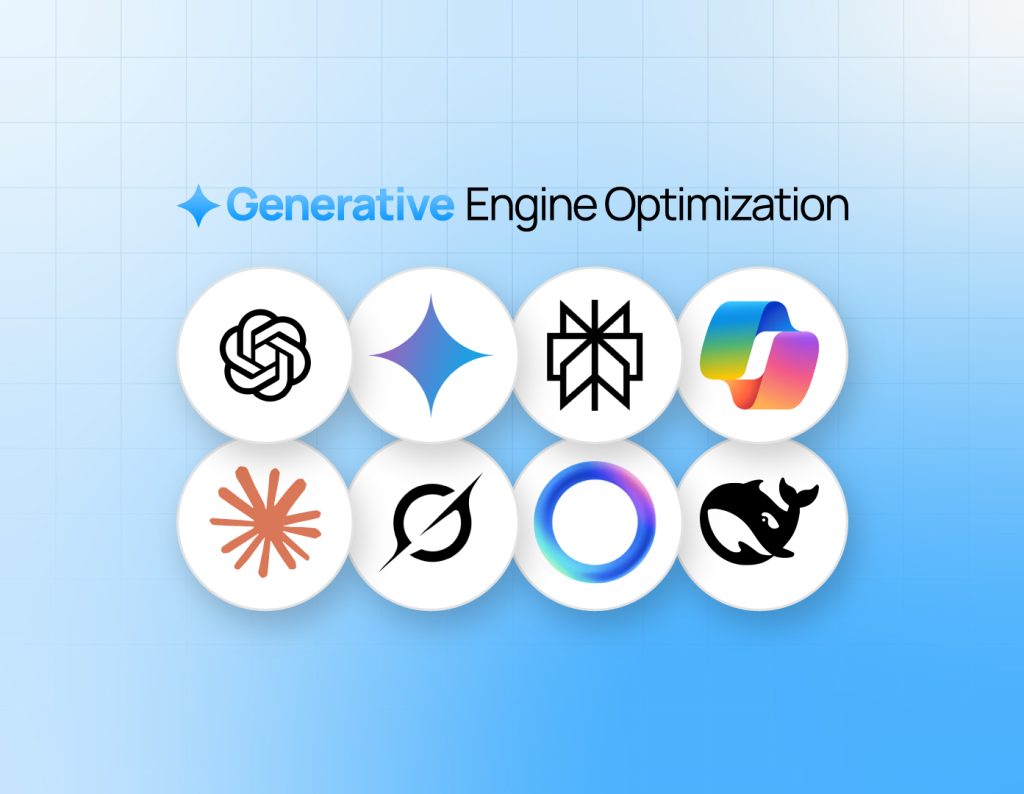
Optimize your content for Generative Engines & LLM's...
Traditional SEO focuses on keywords; AI-SEO focuses on meaning and context. We structure your content so AI tools can understand it and pull it into their responses.
- Semantic optimization that matches how AI interprets queries
- Fact-driven content structured for easy AI consumption
- AI dataset files (llms.txt, ai-dataset.json) to guide crawlers
- Content strategies tailored to AI summaries, not just rankings
Future-proof your business against AI...
Search is moving fast, and early adopters win. By investing in AI-SEO now, you get ahead of competitors who are still stuck in old SEO playbooks.
- Gain first-mover advantage in AI-driven results
- Align your site with emerging search technologies
- Build authority so AI trusts and cites your business
- Combine GEO with Local SEO for complete coverage
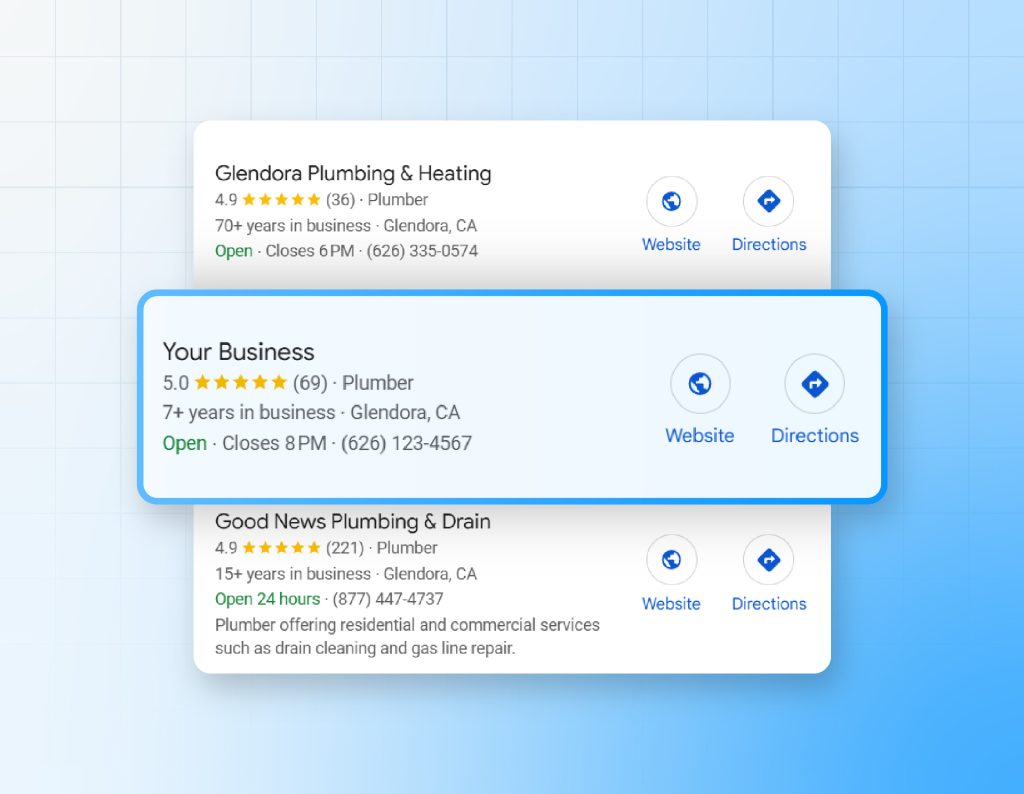
Case Studies
Proven SEO results that are backed by real data.
Our local SEO strategies helped clients boost rankings, dominate their markets, and scale operations. Here’s how we did it.
Deliverables
What is included in our AI-SEO/GEO (generative engine optimization) services?
AI Dataset Files Implementation
We create and configure specialized files like llms.txt and ai-dataset.json to make sure large language models (LLMs) can easily crawl and understand your website.
- Clear instructions to guide AI models on how to use your site
- Structured data that highlights your services and expertise
- Improved chances of being cited in AI-generated answers
- Future-proof formatting that adapts to new AI search protocols
Semantic Content Optimization
AI doesn’t just look for keywords—it looks for meaning and context. We rewrite and structure your content for maximum AI visibility.
- Content formatted for direct answers and summaries
- Fact-driven writing that improves authority and trust
- Semantic keyword targeting that mirrors real user questions
- Context optimization so AI tools understand your expertise
Google Business Profile + AI Integration
We optimize your GBP not just for Google Maps, but also for AI tools.
- Rich service descriptions optimized for generative answers
- Regular posting, photos, and updates to boost activity signals
- Enhanced Q&A sections written for AI readability
- Integration with review strategies for stronger credibility
Structured Data & Schema Markup
Schema markup helps both Google and AI search understand your website. We implement the right schemas to highlight your services.
- LocalBusiness schema for location-specific visibility
- Service and FAQ schema to boost AI-generated answers
- Rich snippets that improve how your site appears in results
- Updated formats that align with evolving AI standards
AI-Focused Keyword & Query Research
We go beyond traditional keyword lists and identify the questions and prompts people are asking AI tools about your industry.
- Research into real “People Also Ask” and AI prompt data
- Long-tail queries tied to high purchase intent
- City- and service-specific keyword variations
Generative Content Frameworks
We develop a content strategy specifically tailored for AI summaries.
- Pages written to answer intent-driven questions directly
- Comparison content that AI engines pull into recommendations
- Localized guides structured for both humans and AI
- Content calendars focused on future-proof ranking topics
Authority & Trust Signals
AI tools prefer citing sources they see as credible. We build those signals into your digital presence.
- Consistent business citations across directories
- Review generation strategies to build customer trust
- Backlink strategies targeting high-authority local sites
- Transparent monitoring of authority growth over time
Advantages
Why should your local service business focus on generative engine optimization?
Generative Engine Optimization (GEO) is no longer optional—it’s the next step in staying competitive online. As AI-driven search tools become a primary way customers find information, local service businesses need to adapt or risk being invisible. Focusing on AI-SEO now ensures you’re not just keeping up with change—you’re leading it.
1
Capture Customers Using AI Search
Consumers are increasingly asking AI tools for recommendations instead of scrolling through pages of search results. GEO makes sure your business is part of those answers.
- Increase visibility across platforms like ChatGPT, Perplexity, and Google's new "AI Mode" search format
- Appear in AI-generated summaries for “near me” searches
- Get cited as a trusted provider by large language models
- Stay top-of-mind when customers look for fast, reliable answers
2
Stay Ahead of Local Competitors
Most local businesses are still focused only on traditional SEO. GEO gives you a first-mover advantage while competitors lag behind.
- Build a stronger online footprint before others catch up
- Outrank competitors in AI-driven local search results
- Establish authority signals that make AI engines trust your business
- Position your brand as an innovator in your industry
3
Build Trust and Authority with AI Engines
AI engines prioritize businesses that look credible and trustworthy. GEO helps you structure your site so AI sees you as the authority.
- Optimized schema and structured data for AI readability
- Consistent business information across directories and citations
- High-quality content written to answer user questions directly
- Enhanced review and reputation signals to boost authority
4
Future-Proof Your Digital Marketing
Generative search is still evolving, but investing in GEO now secures your business’ long-term online visibility.
- Adapt your strategy as AI search continues to grow
- Combine GEO with traditional Local SEO for complete coverage
- Avoid sudden drops in visibility as search behavior shifts
- Build a resilient marketing foundation that lasts for years
Who this is for
Local SEO that actually works for local business.
From plumbers to med spas, if your customers are searching locally, we’ll help them find you. No overwhelm, no confusing packages—just websites that rank and convert. Our SEO solutions cater to various industries:

Home Services
SEO and website solutions for plumbers, HVAC, electricians, roofers, and home service companies. Drive local leads and dominate your service area.

Gyms & Fitness
SEO and web design for gyms, CrossFit, personal trainers, yoga studios, and fitness centers. Increase memberships and stand out locally.

B2B Companies
SEO and website design for B2B companies, service firms, SaaS, and consultants. Improve organic visibility, attract qualified buyers, and scale growth.

Restaurants
SEO and web design for restaurants, cafes, bars, and food businesses. Revved Digital helps you rank higher, get more customers, and grow reliably.

MedSpas & Wellness
SEO and websites for medspas, salons, day spas, and wellness brands. Get more bookings, increase visibility, and grow your client base.

Medical & Professional Services
SEO and web design for dentists, therapists, chiropractors, clinics, and professional service providers. Improve visibility and generate leads.
Learn more
Why Your Local Business Can't Ignore Generative Engine Optimization
Search behavior has changed dramatically.
More than 58% of Google searches now end without a click, and generative engine optimization has become essential for your local business’s online visibility. AI-powered responses have altered the map of customer discovery, which often makes website visits unnecessary.
Your traditional SEO strategies still matter. However, AI-driven search engines have changed everything about how we rank. Google’s AI Overviews cut the click-through rate of top-ranking organic results by 34.5%. Local intent drives nearly 46% of all Google searches, yet most businesses remain hidden from these ready-to-buy customers. The numbers tell an interesting story – 78% of people who search locally on their phones make an offline purchase, usually within a day.
Your business needs to adapt quickly to this new world where generative AI search determines customer discovery. Google Maps helps 88% of consumers find local businesses. Small and medium businesses have started to see the potential – 75% already use AI in some form. Companies that don’t optimize for generative search engines might lose their competitive edge. This piece will help you position your local business for success in this AI-first search world.
The rise of AI-driven search engines
Search has changed a lot from basic keyword matching to AI-powered understanding. Google’s RankBrain, BERT, and similar technologies now understand what users want instead of just matching words. This big change means the usual SEO tactics—keyword placement, metadata optimization, and link building—still matter but won’t give you the edge anymore.
You could call AI search a “digital credit score” that reviews your business’s trustworthiness. Traditional SEO focused on visibility, but generative search engines now put authority and credibility first when they choose which sources to highlight.
How generative AI search changes user behavior
AI-powered search has altered the map of online information seeking. Recent data shows 82% of respondents say “AI-powered search is more helpful than traditional search engines”. Users now treat search more like a conversation than a simple query-and-response tool.
People now use search platforms in new ways:
- They write longer, more conversational searches instead of just keywords
- They want quick, combined answers rather than lists of links
- They build ongoing conversations that add context with each exchange
The numbers tell the story: almost one-third of U.S. adults use AI tools to help with daily decisions—from shopping to travel planning. Google’s data shows AI Overviews make people search 10% more often.
Why zero-click searches are hurting local visibility
Local businesses face a big challenge with zero-click searches.
Research shows AI Overviews reduce click-through rates by 34.5%. These searches—where users get their answers right on the results page—now make up more than 65% of all Google searches.
Your potential customers might find your business hours, address, and phone number without ever clicking to your website. Website traffic numbers are dropping, but the effects go beyond just clicks—this changes how people see and remember your brand, and how you get new customers.
Gartner says organic traffic will drop by 25% by 2026. This makes mastering generative engine optimization crucial for local businesses that want to survive.

Enter your website below to start your proposal request!
Making your business AI-citation worthy
Your business must establish itself as citation-worthy in multiple ways to get regular mentions in AI-generated responses. A strategic approach to how generative search engines assess and reference local businesses will lead to success.
Focus on high-authority citation sources
AI engines are selective about their sources. Third-party websites account for nearly 60% of citations in AI overviews. Your business needs visibility on these platforms:
- Major news outlets like Wall Street Journal (this substantially increases your chances of appearing in ChatGPT's knowledge base)
- Reddit discussions (Google's engines show strong preference for Reddit content)
- Industry-specific directories and trusted review platforms that match your niche
Update and enrich your Google Business Profile
AI engines use your Google Business Profile as a primary data source. A complete profile helps businesses rank better in search results. Your focus should be on:
- Adding detailed service listings with relevant, natural keywords
- Keeping NAP (name, address, phone) consistent across all platforms
- Regular updates that show business activity (at least monthly)
Use schema markup that AI engines can parse
Schema markup bridges your website and AI systems. Proper implementation makes your content 80% more likely to get citations. Local businesses need:
- LocalBusiness schema (tailored to your specific business type)
- Service schema showing offerings and geographic coverage
- Review schema to display customer feedback
- FAQ schema for common questions
Tracking and improving your GEO performance
Your generative engine optimization needs constant measurement and fine-tuning. Performance tracking helps you spot opportunities and makes sure AI systems paint an accurate picture of your business.
Monitor AI citation frequency across platforms
Regular tracking shows if your business shows up in AI-generated responses to relevant queries. Studies indicate that 60% of AI citations link to third-party publishers (including Reddit, Quora, and Yelp), while 40% point directly to businesses. These numbers show why you need to watch both direct and indirect mentions. You should track how often you’re cited in your target queries and note when AI responses include your business. This helps you see if your optimization efforts boost your visibility.
Analyze sentiment and accuracy of AI mentions
AI search engines do more than just mention your business—they shape its narrative. Today’s sentiment analysis tools can tell if your brand appears in positive, negative, or neutral contexts with 95% accuracy. These tools also catch wrong claims and old information about your business. This helps you spot reputation problems that need quick fixes and content that’s due for updates.
Ensure consistent entity recognition across tools
AI systems need to recognize your business as one unified entity on all platforms to mention it reliably. You can boost your entity recognition by using structured data markup and linking your content strategically. Search engines will better understand how your content pieces connect and are more likely to cite you in relevant AI responses.
Success with AI needs both tech know-how and smart planning. You should act now, whether you handle it yourself or get expert help. Your local business should connect with the customers who need you most – whatever search tech does next.
FAQs
Common questions about AI Optimization...
To make it simple, we’ve answered the most common questions business owners ask about generative engine optimization (GEO), and what to expect when working with a professional agency.
What is Generative Search Optimization (GEO)?
Generative Search Optimization (GEO) is the process of optimizing your website so it appears in AI-driven search results, such as ChatGPT responses, Google’s AI Overviews, and other generative engines. Instead of focusing only on blue links in Google search, GEO ensures your brand is included in AI-generated summaries and answers. This means structuring your content so it’s easily understood by large language models (LLMs), using structured data, clear explanations, and source-friendly formatting. GEO is quickly becoming a critical part of modern SEO strategies because more users are turning to AI-powered search engines for quick, direct answers.
Is GEO the same as SEO?
No, GEO is not the same as SEO—though they are closely related. SEO (Search Engine Optimization) focuses on ranking your website higher in traditional search engines like Google and Bing. GEO (Generative Search Optimization) focuses on making your site discoverable and reference-worthy for AI models that generate answers directly, often without sending users to click on a search result. While SEO is about ranking pages, GEO is about being cited in AI-generated responses. Businesses that want to stay ahead should combine both strategies.
How is GEO different from traditional SEO?
Traditional SEO optimizes for search engine algorithms (keywords, backlinks, technical factors) to increase rankings in the SERPs (search engine results pages). GEO, on the other hand, optimizes for generative engines and LLMs, which prioritize:
Content clarity and accuracy over keyword density
Structured data and context for easy model interpretation
Authoritativeness and source reliability
Direct answers instead of long-form content designed just for ranking
In short, SEO is about visibility in search results, while GEO is about visibility in AI-generated answers.
How do AI search engines choose which websites to reference in answers?
AI search engines like ChatGPT, Google’s AI Overviews, and Perplexity reference websites based on a mix of authority, relevance, and structure. They crawl vast amounts of online content, then decide which sites to cite by evaluating:
Credibility and trustworthiness of the domain
Structured data and schema that makes content easy to parse
Clarity and conciseness of explanations
Consistency across sources (AI prefers widely confirmed facts)
Relevance to the query
Unlike Google rankings, which are influenced heavily by backlinks and on-page optimization, AI engines prioritize content that’s well-structured, accurate, and presented in a way that can be quoted directly.
Are Google’s AI Overviews part of GEO?
Yes. Google’s AI Overviews are a direct example of Generative Search Optimization in action. When you search, Google may display an AI-generated summary at the top of the results page, citing a handful of sources. Optimizing your content to be included in these summaries—by writing clear, authoritative, and structured content—is a key part of GEO. The businesses that appear in AI Overviews are positioned as industry authorities, which often results in increased visibility and traffic.
What types of structured data are important for GEO?
Structured data is essential for GEO because it helps AI models understand context and relationships within your content. The most important types include:
Schema.org markup for articles, products, services, and local businesses
FAQ schema to give direct Q&A context (ideal for AI referencing)
How-To schema for step-by-step instructions
LocalBusiness schema for address, hours, and reviews
Custom AI-focused files like
llm.txtorai-dataset.json(to signal your content to LLMs)
Implementing structured data increases the chances that AI-driven engines will cite your business in generated answers.
How does GEO help local businesses?
Generative Search Optimization is especially valuable for local businesses because AI-driven search engines often include local citations and recommendations in their responses. With proper GEO, a local business can:
Increase visibility in AI-powered “near me” searches
Appear as a recommended provider in AI Overviews or voice search answers
Drive more traffic through optimized Google Business Profiles with structured data
Stand out against larger competitors by providing clear, locally-relevant content
For local businesses, GEO means being discovered in AI-driven conversations when potential customers ask for recommendations in their area.
Is AI-SEO a short-term trend or a long-term shift?
AI-SEO (GEO) is a long-term shift, not a passing trend. The rise of generative search isn’t slowing down—Google, OpenAI, Anthropic, and other major platforms are doubling down on AI-powered answers. As users get accustomed to receiving instant, conversational answers instead of sifting through blue links, businesses must adapt. Companies that invest in GEO today are positioning themselves for sustained visibility in the future of search. Just as SEO became essential in the early 2000s, AI-SEO will become the standard for digital marketing going forward.
Pricing
Simple monthly pricing that's transparent and fair.
No long-term contracts. No surprise fees. Just flat-rate SEO that actually delivers. Pick a plan, get results—cancel anytime if we’re not performing (even though that won’t be a problem).
Lite
$600/mo
For new businesses or solopreneurs with 1 location.
Includes:
- 1x AI agentic strategy
- 1x core page rewrite
- 2x blog posts (1k words)
- 1x GBP optimization
- Monthly reporting
Pro
$1,600/mo
For mid-sized businesses with 1-2 locations.
Includes:
- Unlimited AI strategy
- 3x core page rewrites
- 8x blog posts (1k+ words)
- 2x GBP optimizations
- Monthly reporting
- 8x monthly GBP posts
- Call tracking reporting
Dominate
$2,600/mo
For larger businesses with 2+ locations in the same state.
Includes:
- Unlimited AI strategy
- 6x+ core page rewrites
- 12x blog posts (1k+ words)
- 2x+ GBP optimizations
- Monthly reporting
- 16x monthly GBP posts
- Call tracking reporting
- Monthly site audit
- Website CRO/UX overhaul
Enterprise
Custom
For franchises and enterprise businesses with ambition.
100% Tailored SEO Plan
A custom AI SEO plan built for your business and industry.
Proof
Case studies and client testimonials:
SEO Case Study
Western Rooter & Plumbing
Western Rooter’s website wasn’t broken… it just wasn’t converting. We rewrote hundreds of service and location pages, optimized content around real user intent (not just keywords), and prioritized clarity, structure, and engagement over outdated “SEO tricks.” The result? A 40X increase in organic traffic and over 1,000 monthly inbound leads. Our content optimization and search marketing strategy paid off big time.
Andrew and his team have been doing a wonderful job with all marketing aspects within our company. They’re easy to work with, responsive, and the SEO results speak for themselves.
John Bottala
CEO, Western Rooter
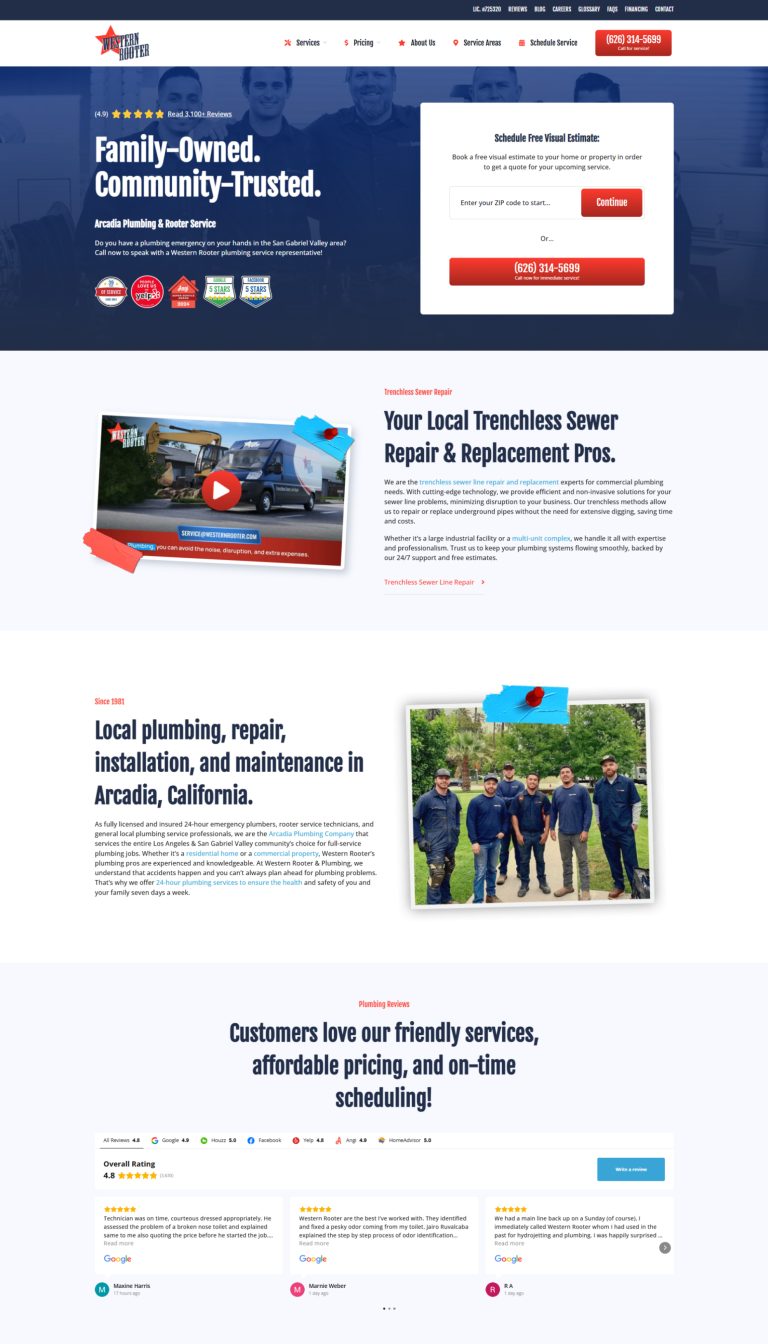
The revamp of our bus tour website was a game-changer. Their sleek design boosted visibility, skyrocketed our local rankings, and our customer engagement is better than ever. Thrilled with the results!
Chris Leschinger
CEO — Hollywood Bus Tours
Shoutout to Andrew and Revved Digital for an amazing website that’s getting rave reviews! They nailed it with great tour highlights, smooth online booking, and a slick design that stands out.
Kenny Burns
CEO — KB Tours
This company did an excellent job on my day spa website, brand, and SEO. Everyone in La Verne is talking about Halotherapy and it’s because of Andrew and his team, so nice work!
Hanna Palacios
CEO — Halotherapy
I have been very impressed with the professionalism and creative process we experienced while Revved developed our webpage. I highly recommend them. The final product is even better than we imagined.
Zack Safi
CEO — Skyline Learning Solutions
The end product is solid and represents who we are. Andrew, your professionalism and patience is unmatched.
Katrina Ghazarian
CEO — Gameday HR
His team worked within my rushed timeframe and they did not disappoint. Thanks Andrew for your patience with me and for all of your help. I highly recommend them for your marketing needs!
Mary McEwan
Mary’s Mobile Notary
Blog
Local SEO insights from our blog:
Insights from our blog on local SEO, Google Business Profile optimization, and content that actually ranks. Built for business owners who want results—fast. Our content marketing efforts keep you informed about the latest trends in search optimization and AI-driven SEO.

